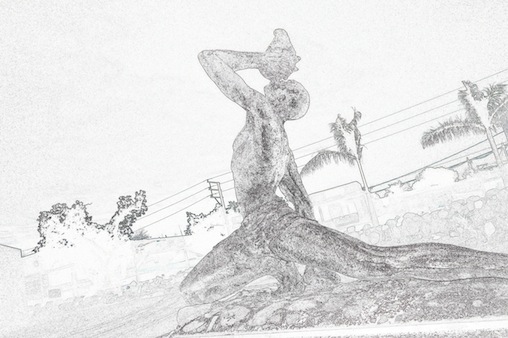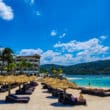By Celucien L Joseph, PhD
Op-Ed Contributor
IN HAITI’S intellectual history, Toussaint Louverture is not only a man of deep commitment to his people but also the great Haitian antiracist and public intellectual, radical social activist and anticolonial prophet of Black Freedom and Human rights in the eighteenth-century.
Haiti has also given the world a man of great mind, Joseph Antenor Firmin. He is the most rigorous Haitian intellectual, antiracist writer, and the first black anthropologist who countered with force, clarity, and intellectual breadth Western racism and epistemic apartheid in the nineteenth century.
In the footsteps of Toussaint and Firmin, Jacques Roumain and Jean Price-Mars continued the intellectual legacy in the twentieth-century.
If Roumain is the most important Marxist writer and novelist the country has produced in the twentieth-century, Price-Mars is the intellectual par excellence who had interrogated the supremacy of Western cultural hegemony and values in the world.
Both Firmin and Price-Mars had sought to create an alternative modernity in Black Atlantic Thought and culture, based on the achievements of the African people and their ancestry in the African Diaspora in the modern world.
Price-Mars was the single Haitian public intellectual and writer who had shaken the intellectual foundation of Haiti when he reevaluated the retentions and merits of African cultural traditions and values in Haiti and in the Black Diaspora, with his epoch-making book, Ainsi parla l’Oncle (1928) (Thus Spoke the Uncle).
If Toussaint had defended human rights and championed universal emancipation and equality for all, Firmin, Roumain, and Price-Mars had influenced several generations of black intellectuals and writers across the Black Atlantic, as well as freedom and cultural movements in the Black Diaspora.
In my new book, From Toussaint to Price-Mars: Rhetoric, Race, and Religion in Haitian Thought, I engage Haiti’s intellectual history by focusing on the ideas and writings of Haiti’s four most important thinkers and writers: Toussaint Louverture, Joseph Antenor Firmin, Jacques Roumain, and Jean Price-Mars—from the eighteenth century to the twentieth-century.
The basic argument I articulate is that Haiti has produced a strong intellectual tradition from the revolutionary era to the postcolonial present, and that Haitian thought has not been homogeneous or unevolved—whether the subject might be history, religion, race, literature, or culture. Hence, the book explores the rich diversity of Haitian intellectual history with regard to its cross-disciplinary and intersectional content.
Correspondingly, From Toussaint to Price-Mars is a work on history of ideas and an attempt to grasp the intersections of rhetoric, religious ideas, the race question, and secular humanism in Haiti’s intellectual history, as well as the various ways they crisscross each other.
As a scholar and interpreter of the human experience, I seek to analyze the thought of Haitian writers and intellectuals in their regional, international, and cosmopolitan context, and with all their complexity and paradoxes.
This sequel is an expansion of what I have formerly called in my first book—Race, Religion, and the Haitian Revolution: Essays on Faith, Freedom, and Decolonization—“Haitian modernity.”
By carefully examining the ideas of Toussaint, Firmin, Roumain, and Price-Mars, I contend that the general interweaving themes of rhetoric, the race concept, race vindication, universal emancipation, religious unorthodoxy, secular humanism, the particular and the universal, and cosmopolitanism are representative of Haiti’s intellectual tradition, Haitian intellectuals and writers.
Like my first book, this present text addresses the general interweaving themes of rhetoric, freedom, the race concept, religion, race vindication, and cosmopolitanism, which I believe are representative of Haiti’s intellectual tradition.
Haitian intellectuals and writers have almost never separated these prevalent motifs from each other and in their work.
Arguably, with the rise of Haitian indigenism, and the noirisme as a cultural nationalism movement in the twentieth-century, Haitian writers began to accentuate Marxism, socialist communism, and peasantry as complementary literary themes in their tradition.
We should remember that Haitian writers and intellectuals have appealed to these theoretical notions and critical theory as tools of analysis to address the fragility of human existence, to make sense of the human experience, and to struggle against Western imperialism, racism, and systemic oppression of all kinds that continue to oppress the people of African ancestry and those living in the margins of modernity in this postcolonial era..
They (i.e. Firmin and Price-Mars) also engaged the concept of race and the science of racial hierarchy and racial difference.
Celucien L. Joseph (Ph.D., University of Texas at Dallas) is an adjunct Professor of English at Palm Beach State College. He specializes in African American Studies and Haitian Studies. He is also the author of Race, Religion, and the Haitian Revolution: Essays on Faith, Freedom, and Decolonization (2012).







